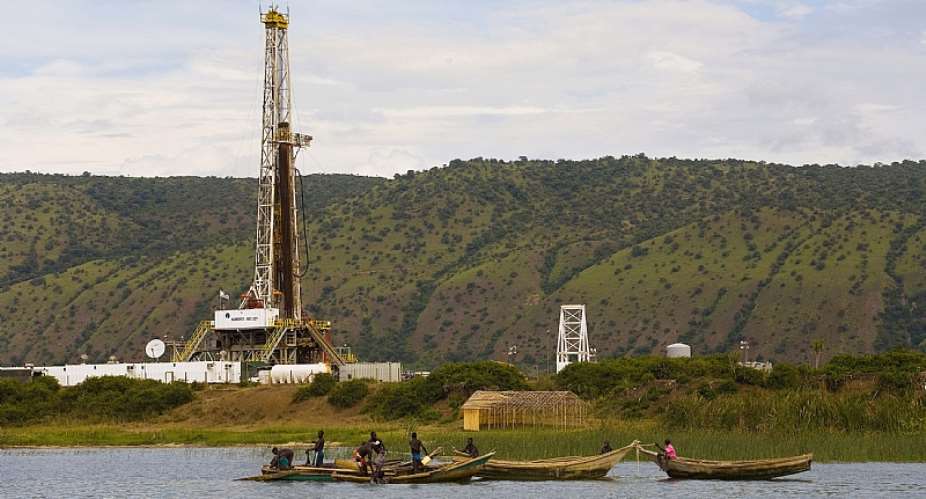Uganda is seeing a blend of Climate change issues with oil talks reach its political zenith, as the country warms up for presidential polls, with political gurus like Dr. Kizza Besigye assuring the public that Uganda’s newly found wealth is a total curse without proper accountability and environmental sustainability.
It is tough to even think that way. A natural resource that has captured ‘our oil-my oil’ wider media cliché, perhaps being regarded as the most important mineral endowment the land locked country has ever controlled, and a phenomenal break in the country’s politico economic realm is labeled a curse!
Sincerely, if oil wealth backfires economically, it might just be a reflection of what has happened in previous years in the greater African oil rich regions. Nigeria's Delta region is home to vast oil reserves, which make the country one of the world's biggest oil exporters but the region remains poor and above all, environmentally tattered as a result of ceaseless oil turmoil.
For many years, armed gangs of youths, hid in the swamps and creeks that make up the Delta, attacked oil pipelines and seized foreign workers for ransom. And with fuming rebel activities sub-Saharan Africa dangles in, Uganda isn’t resistant to catching similar fires of oil war. But this is not a reason strong enough to make us throw our hands up and say: To hell with oil.
There’s a different story. If there’s any single hurdle Uganda as a novice in the vast global oil seller’s list will face throughout this century, it might be no more than the nasty truth unfolding between the fossil fuel and climate change. First, who cursed Uganda that oil would be exploited in this age of deteriorating global environment characterised by issues such as rising global temperatures, rising sea levels among a cluster of difficult questions pertaining climate change?
Or shrugging enough, doesn’t the 34 paged Climate spelling document Uganda already signed last year in Paris require us to “phase out” fossil fuels in pursuit of the broader United Nation Framework Convention Conference on Climate Change’s (UNFCCC) 1.5 degree average temperature goal?
Should the taps to estimated 6.5 billion barrels now be bolted; gigantic refinery blueprints trashed in the name of saving the planet lest the economy stagnate? Believably, these questions are daunting that no one in a panel of battling Ugandan politicians could honestly stand erect to tell the true story of what fossil fuel means to our environment. The shift to renewable energy is launched as climate change, World Bank notices is the biggest threat to humanity in the 21st century.
Oil means death to earth owing to carbon emissions. It’s the reason UNFCCC has decided to avail $100 billion dollars funds for development of green energy or renewable energy sources and begin a shift away from dirty energy sources.
This seems appealing to greenies everywhere than to Uganda’s politico-economic interest. In its Vision 2040 Uganda sees oil and gas generating “revenues for … development of other strategic sectors such as infrastructure and human resource development” as it transforms into a middle income country. This is encouraging.
But it can be more encouraging if the current oil exploration direction is redirected with plans to develop a robust renewable energy pathway. This will lead Uganda walk the talks of its own tone enshrined by Paris climate accord, without breaching the sections of the agreement.





 Minority will expose the beneficial owners of SML, recover funds paid to company...
Minority will expose the beneficial owners of SML, recover funds paid to company...
 Prof. Opoku-Agyemang has ‘decapitated’ the NPP’s strategies; don’t take them ser...
Prof. Opoku-Agyemang has ‘decapitated’ the NPP’s strategies; don’t take them ser...
 Abubakar Tahiru: Ghanaian environmental activist sets world record by hugging 1,...
Abubakar Tahiru: Ghanaian environmental activist sets world record by hugging 1,...
 Prof. Naana Opoku-Agyemang will serve you with dignity, courage, and integrity a...
Prof. Naana Opoku-Agyemang will serve you with dignity, courage, and integrity a...
 Rectify salary anomalies to reduce tension and possible strike action in public ...
Rectify salary anomalies to reduce tension and possible strike action in public ...
 Stop all projects and fix ‘dumsor’ — Professor Charles Marfo to Akufo-Addo
Stop all projects and fix ‘dumsor’ — Professor Charles Marfo to Akufo-Addo
 Blue and white painted schools will attract dirt shortly – Kofi Asare
Blue and white painted schools will attract dirt shortly – Kofi Asare
 I endorse cost-sharing for free SHS, we should prioritise to know who can pay - ...
I endorse cost-sharing for free SHS, we should prioritise to know who can pay - ...
 See the four arsonists who petrol-bombed Labone-based CMG
See the four arsonists who petrol-bombed Labone-based CMG
 Mahama coming back because Akufo-Addo has failed, he hasn't performed more than ...
Mahama coming back because Akufo-Addo has failed, he hasn't performed more than ...
